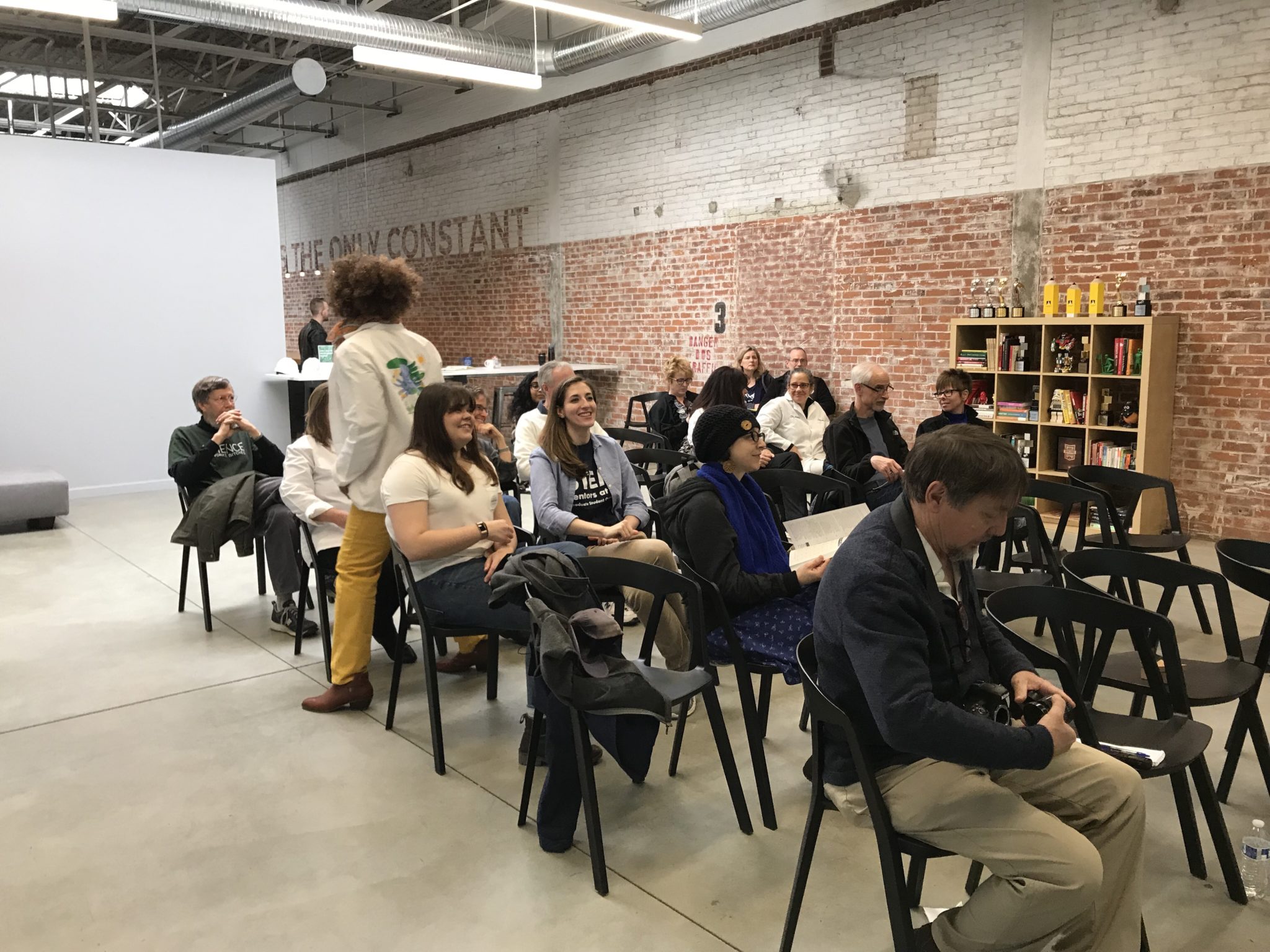
In the wake of President Donald Trump’s election, scientists and activists organized a national March for Science in which hundreds of thousands of Americans in dozens of cities across the country reaffirmed their commitment to scientific inquiry. After the second annual March for Science this weekend, some Yale students, in conjunction with local scientists and community leaders, took the extra step of working to educate the Yale and New Haven communities about scientific issues.
Students from the Yale Science Diplomats, working alongside the New Haven chapter of Action Together CT and District New Haven, worked to reinforce the message of the March for Science events — which were held on Saturday — by creating the inaugural Beyond the March for Science. The event took place on Sunday afternoon at a district office space in the East Rock neighborhood of New Haven and featured booths in which scientific organizations educated participants about science and environmental issues, as well as a series of talks by local scientists and community organizers.
“Everyone marched yesterday,” said Sarah Smaga GRD ’19, the lead organizer behind the event. “We wanted to do something more to create dialogue and create relationships between members of the community that are interested in science, scientists and advocates.”
Andrea McCarthy, who spoke on behalf of the organizers, explained “that it is crucial for scientists to engage the general public in discussions about their work and its relevance.” She added that the Trump administration “has shown disregard for evidence-based policy and [has] actively worked to undermine the process of scientific inquiry.”
Smaga said she could not estimate how many people attended the event but knew that more than 100 people indicated they were “interested” in attending on Facebook.
Melanie Reschke GRD ’22 manned a station that included an informational poster explaining research on how DNA can be used to treat cancer.
“Communicating science is something I feel really strongly about,” said Reschke. “I feel like I have a responsibility to communicate my work to the public in a way that is engaging and approachable. It is … unfortunate that the public feels a lack of ownership of science. It is our responsibility as scientists to make sure people are able to understand [research being conducted].”
Reschke added that she believes that smaller, local events are just as important as bigger marches held in Washington, New York or Hartford and that they give Yale students an opportunity to give back to the greater New Haven community. She explained that she hopes not only to get young kids interested in science, but also to make science less alienating.
Local organizations ran other booths. Laura McMillan, the director of communications for the Connecticut Fund for the Environment, explained that she feels science is under attack in the United States. She also emphasized the necessity of scientific research to elucidate healthy environmental actions.
“For example, you can’t plan where to build a new marina on the [Long Island] Sound, if you are unable to forecast where the sea level will be 40 years from now,” she said.
As for the future of the event, Smaga hopes it “grows and matures” along with the needs of the community. She explained that while direct action was necessary last year, this year the event emphasized learning more.
Throughout the year, she said, she hopes to remind people that “science is awesome.”
Skakel McCooey | skakel.mccooey@yale.edu







